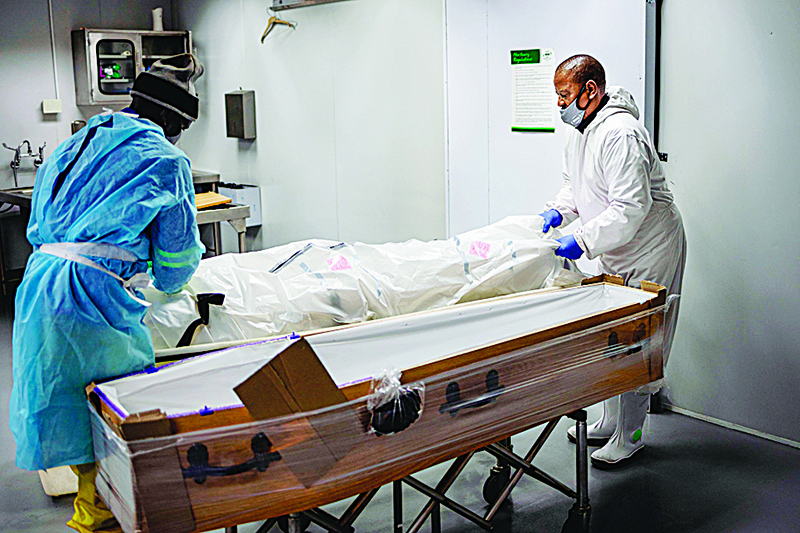

WASHINGTON: A surge in coronavirus cases across the United States and Europe has forced governments to strengthen containment measures as a survey released yesterday showed support for the handling of their pandemics has slipped. The disease has now killed almost 635,000 people around the world and infected more than 15.5 million, according to an AFP tally, with America the hardest-hit nation. For the second straight day on Friday the US reported more than 70,000 new cases and over 1,000 deaths as the virus takes hold in the country’s south and west.
A similar resurgence in Europe prompted the World Health Organization to sound the alarm over the spread, as Britain joined France, Germany and Austria in tightening rules on masks and rolling out greater testing. Governments worldwide have struggled to contain the coronavirus despite long and arduous lockdowns imposed on millions of people, and a survey released Saturday showed faith in authorities to be dwindling in six rich nations.
Populations in France, Germany, Britain, Japan, Sweden and the US widely believed death and infection figures to be higher than recorded, according to the study, which polled 1,000 people in each nation. "In most countries this month, support for national governments is falling,” the report by the Kekst CNC communications consulting group said.
‘Cause for concern’
Europe accounts for a fifth of the world’s case count so far. The WHO’s European chapter expressed concern Friday about the rise in cases on the continent in the past two weeks and warned tighter restrictions may be needed. A three-year-old girl this week died in Belgium, becoming the country’s youngest victim of the virus. "The recent resurgence in COVID-19 cases in some countries following the easing of physical distancing measures is certainly cause for concern,” a WHO Europe spokeswoman told AFP.
"If the situation demands, reintroduction of stricter, targeted measures with the full engagement of communities may be needed.” Outbreaks have been seen recently in the Spanish regions of Aragon and Catalonia where officials have reintroduced curbs on daily life and urged Barcelona residents to only leave home for essential trips.
Testing drive
French Prime minister Jean Castex said on-the-spot testing would be rolled out for travellers arriving in France from 16 high-risk countries. Masks are now mandatory in enclosed spaces across the nation and there are fears that the summer holiday season could see a new spike in the disease as people flock to beaches and tourist spots. Britain on Friday also made it compulsory to wear a face covering in shopping centres, banks, takeaway outlets, sandwich shops and supermarkets.
Exceptions have been made, including for children under 11 or people with respiratory problems, but others who refuse to cover their nose and mouth in the UK risk a fine of up to £100 ($130). Austria has reimplemented a similar policy with face masks mandatory again in a range of places from supermarkets to pharmacies-the rule previously having been relaxed. "It was a mistake to lift mandatory mask use so soon,” said one Austrian shopper, Andreas Poschenreither.
‘Wartime mode’
New outbreaks continue to wreak havoc elsewhere around the world, with fresh clusters emerging across Asia. South Korea on Saturday reported its highest infections figure in nearly four months, and in Vietnam the first locally-transmitted case in nearly 100 days was detected. Authorities in China said Friday they would introduce a new wave of testing in the port city of Dalian, home to about six million people, after fresh infections were detected there. The local government’s health commission said the city must "enter wartime mode” to prevent any spread as it announced on-the-spot nucleic acid tests for people using the subway system and new lockdowns for some communities. —AFP

